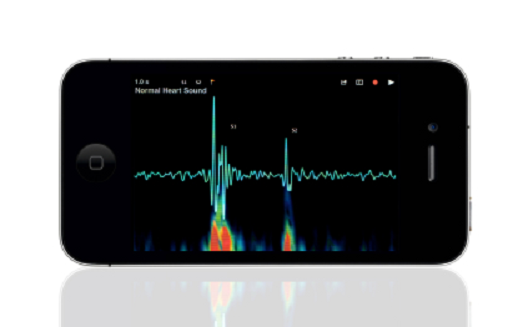Why healthcare in the Arab world needs to go mobile

This piece was originally published on the Huffington Post.
The Middle East and North Africa (MENA) should take advantage of its mobile penetration and entrepreneurial activity to improve its healthcare systems.
Globally, the healthcare and mobile sectors have become intertwined, due in large part to entrepreneurs. With mobile phones as their base, entrepreneurs are pioneering mobile health (m-health) tools that can do everything from expedite the turnaround time on test results to check heart rates from phones. The field is set to grow to an estimated $26 billion by 2017. Additionally, venture capital investments in digital health technologies - significantly composed of m-health reached close to US $500 million in the first quarter of 2013.

Three factors have contributed to m-health's growth: 1) demand for faster processes and access to information; 2) growing mobile usage globally; and 3) an opportunity for entrepreneurs and other players to create new solutions to lingering problems.
Despite having abundant need for solutions to healthcare support gaps, this field is largely vacant in MENA. This near absence has been pointed out before and even last month when the African Development Bank announced its winners for its 2013 mobile health competition and none came from its MENA member countries.
The need and opportunity for innovation in the region's healthcare space is obvious. In fact, a 2012 Strategy& study of online trends in MENA countries identified healthcare as the sector most needing an information and communication technology upgrade. The region has approximately 18 qualified physicians per 10,000 people compared to the 27 in England and the U.S. There is also a significant shortage of additional medical support as the region has 28.4 nurses and midwives per 10,000 people, roughly 71% lower than the U.S.
Though governments across the region are expected to increase expenditures on healthcare, the situation requires fast solutions and m-health needs to figure in prominently to this equation.
Two promising trends are evolving that could help trigger more m-health activity in the region.First, MENA's entrepreneurship landscape is developing rapidly, with information and communication technology companies at the center. This growing startup community is the pioneer for new ideas and its entrepreneurs are perfect candidates to develop online healthcare solutions.Second, mobile usage has grown considerably throughout the region. In the first quarter of 2013, mobile penetration in MENA was at 109 percent. During this same period, half of all mobiles sold in the region were smartphones. Saudi Arabia and the United Arab Emirates have some of the highest smart phone penetration rates in the world.
These two trends are basic ingredients for boosting m-health regionally. In fact, there is evidence that they have already converged to begin disrupting the region's healthcare sector. Over 60 percent of visitors to Altibbi.com, a startup that provides online medical information in Arabic throughout MENA, have come from mobiles in 2013, up from 30 percent at the end of 2012.Over the past six months the company has received an average of 750,000 visits per month via mobiles. Additionally, a company poll found that 73 percent of its users consider the Internet as a primary source of medical information versus only 13 percent who say they consult physicians for the same insight.
These numbers suggest that Altibbi's visitors are not going to the site just to access information, but that they may be doing so because they are not relying on in-person physician consultations. In fact, since the company began allowing visitors to post questions for doctors on its site, over 19,000 questions have been submitted, again demonstrating willingness and interest to share medical knowledge online.Furthermore, since Altibbi launched its mobile app for its website it has been downloaded over 360,000 times, averaging 14,800 times per month. Another one of the company' mobile apps is the Symptom Checker, which allows users to better understand medical conditions and ailments through their phones - is downloaded an average of 12,400 times per month.
More early-stage evidence is the Startappz company's Diabetes Test app, which allows users to check for signs of the disease. To date, the app has been downloaded over one hundred thousand times across 120 different countries. Other examples exist such as Egypt's Dr. Bridge, which has designed an app that facilitates physician-patient interaction via mobile messaging. Another Egyptian startup, Doctoruna, provides directories of physicians and dentists by location and insurance coverage.
The presence and impact of these entrepreneurial ventures are promising, yet more startups must enter this field. Patients, physicians and other healthcare players must do the same.
Two long-term steps must be taken to improve the ecosystem in which these companies and other players operate:
1. It is imperative to create regulation to monitor the quality of information, protect patients' and physicians' rights and give entrepreneurs guidelines to follow. Regulations in mobile health are still evolving globally. For instance, the Food and Drug Administration in the United States recently began its first investigation into an un-regulated healthcare app. Once such regulations are in place in MENA it will be easier for more entrepreneurs to be ambitious and more patients and physicians will feel comfortable utilizing these tools.
2. There needs to be more sharing of best practices from abroad. There are ample examples of how entrepreneurs have developed mobile health solutions and also how accelerators, investors, and even foundations have supported this field globally. Knowledge sharing with these players can help MENA entrepreneurs identify how to best tailor mobile solutions to the region's needs. While MENA entrepreneurs will also need to develop technology that is exported to the rest of the world, there is still great value in adapting foreign models to the region.
These two recommendations are not quick wins, though they are critical for developing a robust and innovative m-health sector in MENA. Even small improvements to the surrounding ecosystem could open the door for new companies while also encouraging patients and physicians to jump on board.


